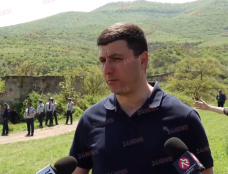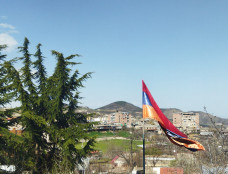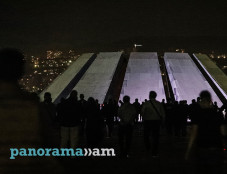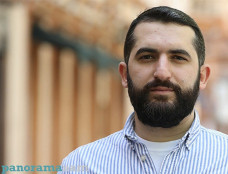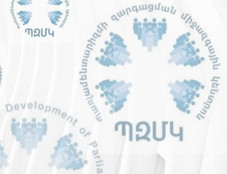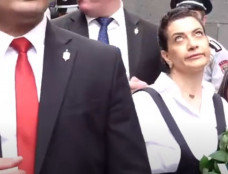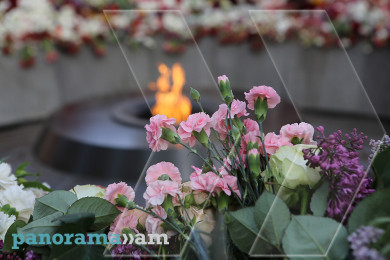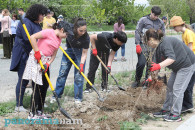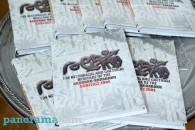
Armenian genocide: Turkey has lost the battle of truth
By Cengiz Aktar
Senior Scholar at Istanbul Policy Center
From Al Jazeera
"In actuality, how Turks and Armenians, as the owners of this common history, can together, through dialogue and empathy, reach a just memory of the tragic events of 1915, which occurred during the great human sufferings of World War I, is already being examined thoroughly and in all its dimensions. In this context, our proposal to establish a Joint Historical Commission, also reflected in the Turkish-Armenian Protocols, remains on the agenda."
The quotation is from the Turkish Foreign Ministry's press release regarding the US Senate Foreign Relations Committee's recent resolution on the Armenian genocide. In the wake of its centenary, this is the uttermost point reached by the Turkish state in the perception of the annihilation of the Ottoman Empire's Armenian citizens: A "just memory" and a "joint historical commission". The just memory is a euphemism to recall revenge killings of Muslims in some areas by Armenian avengers once their people were decimated by the state and their neighbours. And the commission is a sort of face-saver to equate the pains.
In 2009 though, the above-mentioned Protocols came as a brave project aiming at normalising Turkish-Armenian relations. For the first time in almost a century, it meant that the Turkish state took the initiative to follow a different approach than the eternal enmity based on the denial of the "genocide". Hopes were high for a new era. However in the final tally, Turkey's superior energy needs and the overwhelming nationalist rhetoric forced the state to choose Armenia's arch-enemy, the Turkish-speaking and oil-rich Azerbaijan and to revert to its traditional policy over normalising relations with Armenia. So came to a grinding close Turkey's first innovative Armenia policy before it even began.
The Azeri factor
Before the Protocols, Azerbaijan was asking for a clear reference in the text to the solution of the Karabakh stalemate which didn't occur. But following the failure of the Protocols, the Azeri factor emerged compellingly on the Turkish political and public scenes. Now it is the determinant in Turkey's Armenia and Armenian policy overall.
Today, three patterns emerge in Turkey's traditional policy towards the events of 1915. First, denialist lobbying activities abroad and efforts to influence the lawmakers, especially in the US are now co-sponsored by Azeris. Secondly, denials cloaked in scientific covers aimed at persuading the Western academic world have become prominent, replacing the vulgar denialism. And thirdly, there is a clear attempt to substitute other events for 1915. Dardanelles battle victory in the west and the military debacle of Sarikamis in the east, are being flogged in the official narrative as the historical substitutes to what occurred to Armenians in 1915.
Despite these endeavours, Turkey has long lost the battle of truth. The destruction of the Armenian population on its ancestral land is a sheer fact, whatever else you might call it.
April 24, 1915 was the dark day when the decision to erase Armenians from Anatolia began to be implemented by the Ottoman government of Young Turks, or the Ittihadists. The rationale behind it was to engineer a homogeneous population composed of Muslims designated to form the backbone of the "yet to be invented" Turkish nation. Thus, there was no place for Christian populations despite their historic presence on those lands.
According to the report commissioned in May 1919 by the Ottoman government that came to power in 1918 after the demise of the Young Turks, the number of Armenian citizens who had lost their lives was 800,000. A book published in 1928 by the Turkish General Staff detailing losses during World War I notes: "800,000 Armenians and 200,000 Greeks died as a result of massacres, forced relocations and forced labour."
When one adds those who died after 1918 in the Caucasus region due to hunger, illness and massacres, the figure surpasses one million. The "cleansing" work of Ittihadists was completed by Kemalists by obliging those throughout Anatolia whose lives were spared to take shelter in Istanbul and simultaneously by suppressing their places of worship and schools throughout Anatolia.
In Turkey, thorough knowledge of what really happened and the consequences of the countrywide disaster is cruelly lacking. The memory was scrupulously distorted and minimised by the state. For the sake of comparison, there is over 26,000 volumes published abroad on the genocide against less than 20 serious accounts in Turkey.
No one is capable of evaluating the consequences to human, political and economic relations throughout Anatolia once the Armenians were eliminated. It is, however, quite certain that the effects of such a wide-reaching elimination operation were enormous.
Denialist paradigm vs empowered society
Today, there is an ever growing awareness regarding the bad as well as the good memory. Public actions, perhaps not so numerous, but certainly momentous, are building up at all levels. So far unhampered by the authorities, they primarily rely on voluntary citizens' initiatives. These memory works take place in four major areas: academia and publishing; individual and collective memory search; public awareness and visibility; religious and cultural discovery.
Regarding academic interest, following pioneering publishers, many publishing houses now produce works in connection with the painful memory, but also in relation to the rich cosmopolitan past of the Ottoman Empire.
On the individual and collective memory search, many people proudly seek, discover or rediscover ancestors of non-Muslim origin in their families.
Public awareness and visibility is growing by the day. Non-Muslims literally discover themselves and are "discovered" by the society.Since 2010, April 24 is commemorated in more and more cities. Moreover, accounts on righteous people who saved their neighbours' lives, descendants of Armenians who had to convert to Islam to save their lives are made public.
On religious and cultural area, remnants of monuments that survived are painstakingly taken care of, masses are celebrated again in Anatolia and the cultural heritage is dealt with.
It should be noted that the emergence of this process wasn't due exclusively to the external push and the government's early reformism. The society has paid a substantial price for it, probably symbolised by the murder of Armenian Turkish journalist Hrant Dink. Social maturation and empowerment is Turkey's key to facing the challenges of the aching past.
Thus, even the slow and lengthy process - understandably forcing the limits of one's patience waiting for a due recognition of century-old crimes - in the development of policies growing out of a painstaking, yet convulsive societal recollection, is a healthy and perennial endeavour.
The genie is out of the bottle. When and how it will affect state policy is difficult to predict. But the civilian activism and awareness remains the sole sustainable asset before any normalisation of relations. Although the road for civil activism is mostly clear, the 'state highway' is much obstructed by structural roadblocks.
Newsfeed
Videos







